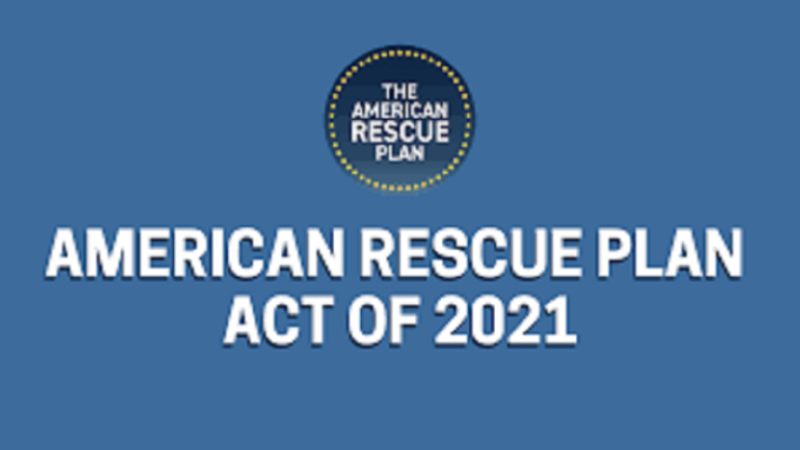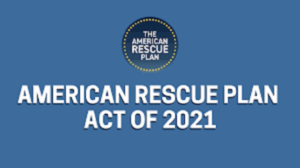

On Wednesday, the state of Ohio filed a lawsuit challenging the constitutionality of Section 602(c)(2)(A) of the American Rescue Plan Act (ARPA), the $1.9 billion “stimulus” bill recently passed by Congress. Section 602(c)(2)(A) bars states and territorial government that receive federal grants under the act (which includes a total of $350 billion in grants to state and local governments) from enacting tax cuts that are “directly or indirectly” offset by ARPA grants:
A State or territory shall not use the funds provided under this section or transferred pursuant to section 603(c)(4) to either directly or indirectly offset a reduction in the net tax revenue of such State or territory resulting from a change in law, regulation, or administrative interpretation during the covered period [from now till December 31, 2024] that reduces any tax (by providing for a reduction in a rate, a rebate, a deduction, a credit, or otherwise) or delays the imposition of any tax or tax increase.
State attorneys general from 21 other “red” states have signed a letter complaining about this provision. It is likely that many of them will either join Ohio’s lawsuit, or file cases of their own.
In my view, Ohio has a good chance of getting this provision invalidated in court. Ironically, the primary reason why is the same as that which led to the defeat of the Trump administration’s efforts to use the threat of withholding federal grants to pressure sanctuary cities into cooperating with federal efforts to deport undocumented immigrants. In both cases, the requirement in question was never clearly authorized by Congress. In addition, it could be that the tax requirement is “coercive”—an issue that also came up in some of the Trump sanctuary city cases.
In cases such as Pennhurst v. Halderman (1981), and South Dakota v. Dole (1987) the Supreme Court has made clear that, if the federal government imposes conditions on grants to state governments, it must do so “unambiguously” in a statute enacted by Congress. The Trump administration suffered repeated defeats in the sanctuary city cases in large part because it tried to leverage vaguely worded statutes to impose conditions related to immigration enforcement that were nowhere near clear from the statutes themselves.
Much the same problem arises in this case. Section 602 does indicate that ARPA imposes at least some constraints on the enactment of tax cuts by recipient states. But it is far from clear exactly which ones, or what the penalty for noncompliance is. Ohio’s complaint describes part of the problem:
The [tax condition] is far from “unambiguous.” What changes to tax policy that cause a decrease in net revenue are “indirectly” offset by funds acquired through the Act? Unless the answer is “every change to tax policy,” neither the English language nor economic theory provides an answer. And how does one know whether a change to tax policy causes a net reduction in revenue? For example, if revenue would have decreased even further but for a tax cut, would the tax cut still violate the Mandate? The Tax Mandate does not answer these questions. As a result, the conditions it imposes are too ambiguous to be upheld under the Spending Clause.
The ambiguity actually goes well beyond that. Among other things, it is not clear whether a change in tax rates or other relevant policies that was enacted before ARPA passed, but only takes effect during “the covered period” would qualify as a forbidden policy. Also, if a state violates the condition, it is not clear whether it stands to lose all of its ARPA grant money or only the part “offset” by the “reduction in net tax revenue.” As co-blogger Josh Blackman notes, the Biden administration Treasury Department seems to have adopted the latter position, which is more generous to states than the former. But nothing in the text of the statute tells us which interpretation is correct.
And if the Treasury interpretation is right, there is also the question of how and when we calculate the amount of money the state must give back to the federal government. Estimating the amount of revenue lost as a result of a tax cut is is a complex business. Economists sometimes differ among themselves on the methodology. In some instances, as Ohio notes, a tax cut might even increase revenue rather than reduce it. Whether a cut results in a decrease in revenue and by how much may not be known for several years. Even then, experts might still differ on how much of the loss was due to the tax cut and how much to changes in background economic conditions.
The text of Section 602 doesn’t resolve any of these ambiguities. And, as the Trump administration found in the sanctuary city cases, the gaps cannot be filled by the executive branch making up its own answers. If the executive can use vague statutes to impose its own grant conditions on state governments, it would give the president dangerous leverage to pressure the states and usurp Congress’ power of the purse, thereby undermining both federalism and the separation of powers. That was true of Trump’s assault on sanctuary cities, and Section 602 raises the same problem.
So far, at least, the Biden administration isn’t adopting the most aggressive possible interpretation of Section 602 (as Trump tried to with the authorizing statutes for grants he sought to pull from sanctuary cities). But no administration should have the power to, in effect, make up grant conditions that were never authorized by Congress.
The ambiguous nature of the Section 602 condition is its biggest legal vulnerability. But Ohio also plausibly argues that the condition is coercive:
This scheme violates the Spending Clause, because the “financial inducement” the Act offers “to the States … is much more than ‘relatively mild encouragement'” of the sort the Spending Clause permits—instead, “it is a gun to the head.” NFIB [v. Sebelius], 567 U.S. at 580–81 (op. of Roberts, C.J.)…. The Act requires every State to choose between money it cannot refuse and limits on its sovereign authority. In NFIB, the Court determined that the Medicaid expansion coerced the States because it “threatened” to deny States funding equal to “over 10 percent of” their “overall budget[s]” unless they agreed to expand their Medicaid programs…. The Act is similarly coercive: Ohio will be denied funding equal to 7.4 percent of its total expenditure in 2020—funding the State badly needs in an economic crisis—unless it agrees to limits on its power to tax.
In NFIB v. Sebelius (2012)—Obamacare case—the Supreme Court belatedly gave some teeth to the longstanding principle that conditions on federal grants to state governments cannot be so onerous as to be “coercive.” Similarly, at least one lower court ruling invalidated Trump’s January 2017 executive order seeking to pull federal grants from sanctuary grants, in part on the grounds that its attempt to pull virtually all federal funds from them was coercive.
Despite the use of the colorful metaphor of a “gun to the head,” Chief Justice John Roberts notoriously failed to make clear exactly when the amount of money at stake becomes so large that the state has no real choice but to accept. Ohio is right to point out that the ARPA grants it stands to lose amount to some 7.4% of its total spending, which is arguably in the same ballpark as the “over 10 percent” states stood to lose in NFIB. On the other hand, ARPA is a one-time grant, which the loss of Medicaid funding imposed by the Affordable Care Act would have been repeated every year. Moreover, despite Ohio’s claim that the economic crisis makes refusal impossible, most states actually have not suffered major revenue losses over the last year, and many (including Ohio itself) have actually gained tax revenue.
Thus, ARPA is not as obviously an offer the states can’t refuse, as the ACA was (or Trump’s 2017 sanctuary cities order). But even if it is not a gun to the head, it is still a large amount of money—perhaps enough to be a dagger to the groin. Whether that is enough to cross the line into “coercion” remains to be seen. We may not know unless and until the case gets to the Supreme Court, and the justices deign to enlighten us on that point.
If it were up to me, I would dump the vague and subjective “coercion” test entirely and instead replace it with more vigorous enforcement of the original meaning of the requirement that federal grants may only be used “to pay the Debts and provide for the common Defence and the general Welfare of the United States” (which, contrary to modern mythology, does not cover anything Congress might think is potentially beneficial in some way). But the coercion rule is a second-best principle preferable to simply allowing Congress to enact any conditions it wants. And, regardless of what I might think, it has been adopted by the Supreme Court, and is unlikely to be done away with anytime soon.
There is more than a hint of “fair weather federalism” in this litigation. Many, perhaps most, of the “red state” officials who support Ohio’s position had no objection to Trump’s efforts to use federal grants to pressure sanctuary cities. For their part, many Democrats who backed legal challenges to Trump’s sanctuary city policies, are happy to back the ARPA conditions (though some on the left did engage in more systematic rethinking of federalism in the Trump era).
More generally, Ohio and other red states objection to the ARPA tax condition seem happy to get federal funds, so long as there are no unpleasant conditions attached. Given the generally modest impact of the Covid crisis on the fiscal condition of most states, it would be better to do away with the ARPA grants entirely. A giant handout for states, regardless of any real need, promotes dependency and creates incentives for future profligacy. That’s good for state employees (including the present author!), but bad for the future of federalism.
Be that as it may, the ignoble motives of many of the politicians involved don’t change the constitutional issue. The tax condition likely violates the requirement that federal grant requirements must be “unambiguous.” There is also a solid—though much less conclusive—argument that it is “coercive.” At the very least, this case is likely to prove an uphill struggle for the Biden administration.
from Latest – Reason.com https://ift.tt/3vJhsgn
via IFTTT

